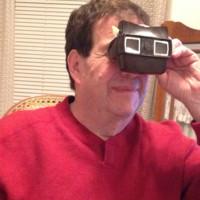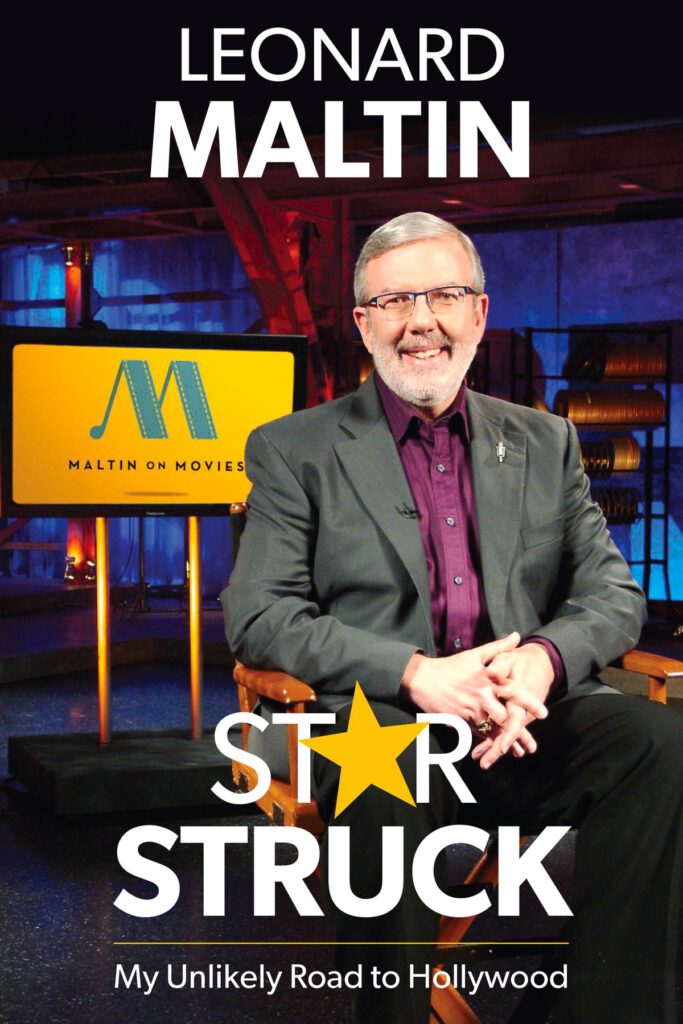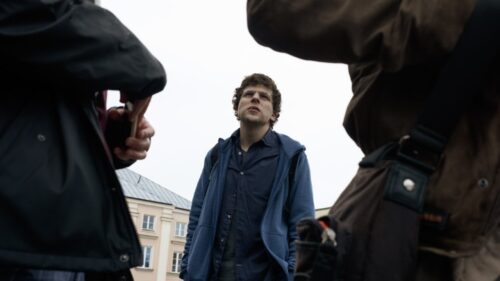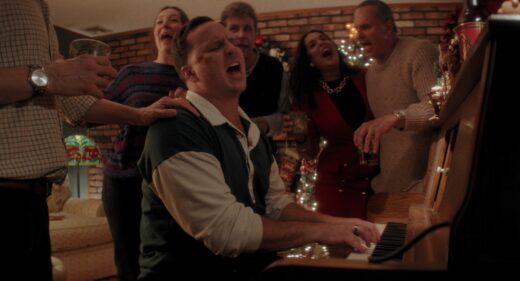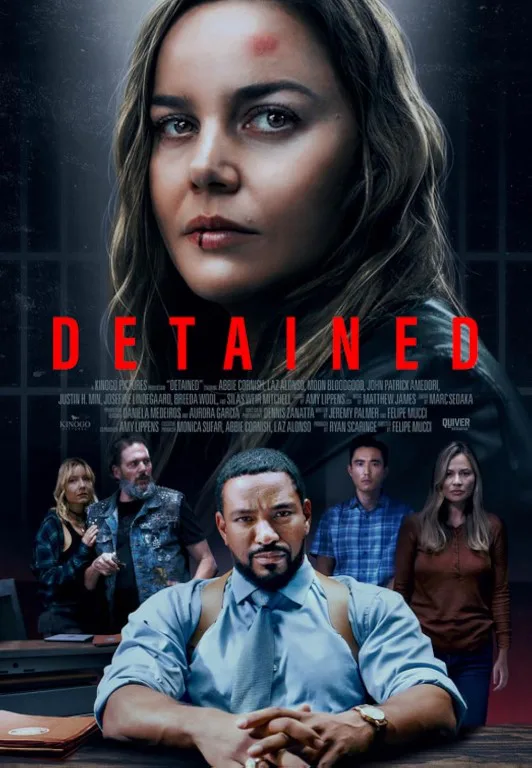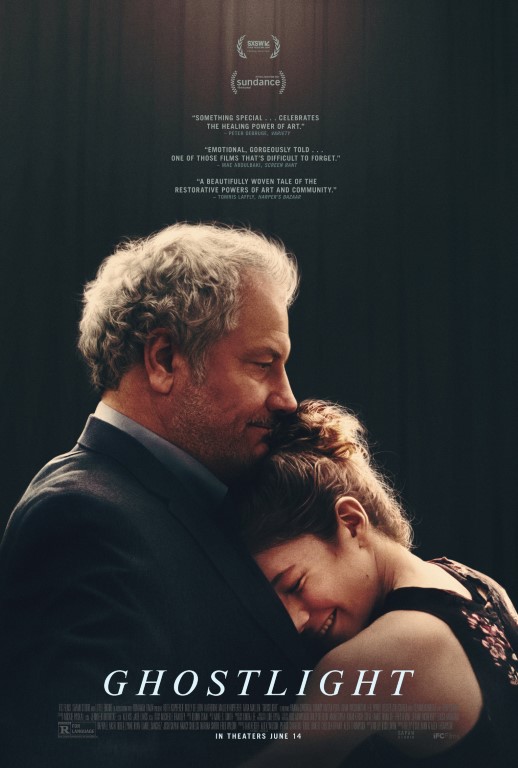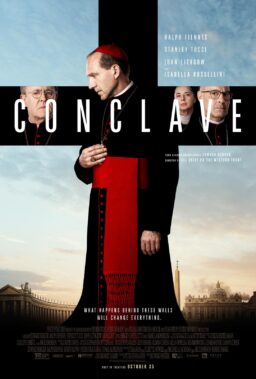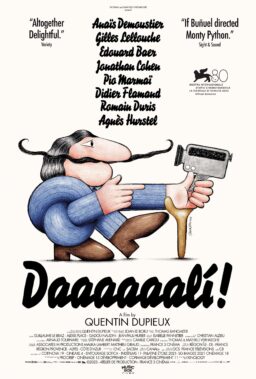It could be argued that Leonard Maltin's Starstruck: My Unlikely Road to Hollywood is mistitled. Unlikely? Where else but Hollywood for the New York-born, New Jersey-raised lifelong film fan, self-described "television junkie," silent film comedy and Disney film obsessive, and former teenage film fanzine publisher? He seems fated to grow up to be one of the movies' most popularly-known critics, historians and goodwill ambassadors.
For 30 years, Maltin was the one and only film critic on "Entertainment Tonight" (he was also the film critic for Playboy for six years, a role for which he was recommended by Roger Ebert). He is the prolific author of such seminal tomes as Movie Comedy Teams, The Disney Films, The Little Rascals, and was, for 45 years, the writer and editor of the indispensable Leonard Maltin's Movie Guide, which Patton Oswalt once called "A paperback Kubrickian monolith of one man's massive and far-reaching tastes."
Don't come to Starstruck looking for dirt. That's not the Maltin way. But there are scores of amusing, often self-deprecating anecdotes and grace notes, such as Emma Thompson confession to Maltin her preference for Buster Keaton over her native countryman Charlie Chaplin.
In 2018, Maltin revealed that he had been diagnosed with Parkinson's four years earlier ("I'm healthy, I'm determined, and I'm grateful," he characteristically tweeted). He refuses to let it slow him down. His blog, Leonard Maltin's Movie Crazy is available on leonardmaltin.com. He co-hosts the weekly "Maltin on Movies" podcast with his daughter, Jessie (over 300 episodes thus far). They also talk film and answer questions in a livestream every Sunday on Facebook, Twitter, YouTube and Instagram.
When we spoke, he had just returned from a one-nighter in Akron, Ohio, where he discussed his career and living with the disease. Movies, he says, are the best medicine.

As you are the author of The Disney Films, I'd be remiss I didn't ask you about Tommy Kirk, a Disney icon we just lost. When I was growing up, the movies he made, like "Old Yeller" and "The Shaggy Dog," first made me love the movies. What are your memories of him?
"Old Yeller" was going to make its network debut on ABC on a Sunday night, and "Entertainment Tonight" sent me to the studio to interview Fess Parker, Dorothy McGuire, and Tommy Kirk. It was pretty cool. I didn't recognize Tommy; I hadn't seen him in years. It was shocking at first, frankly. I tried to find a non-judgmental way of asking, ‘Where have you been?' He said, ‘I stopped working because of illness; they got sick of me.'
Then, I had a wonderful interview with him and Tim Considine for 2006 "Walt Disney Treasures" DVD release of "The Hardy Boys" (a serialized feature on "The Mickey Mouse Club.") And it was really touching and heartwarming to see with my own eyes the utter admiration that Tim had for him.
And now to Starstruck. Katie Couric's memoir was just published and, in the excerpts I've read, she takes the opportunity to settle scores with former colleagues, rivals and lovers, and just burns all her bridges. You find very little of this in Leonard Maltin's memoir.
I didn't have any big scores to settle [laughs]. I started writing about some of my difficult times at "Entertainment Tonight," but I said no, this is not what I want this book to be.
While you do write about your mildly fraught relationship with Burt Reynolds, you don't take potshots at celebrities who were bad interviews or who acted unprofessionally.
I'm not a Pollyanna, but in 30 years of working for "Entertainment Tonight," I can count bad interview experiences on one hand. It's a matter of outlook. I like to think of myself as a positive person and sometimes if you give off that vibe, it can be contagious.
Was your love of films stoked more by seeing them on the big screen or on television?
Television. I'm a prototypical baby boomer, born in 1950. I do not remember a time when we didn't have a television set. I became a television junkie.

You describe yourself in the book as "a lucky film buff," but you were not only published at 13, you were the publisher of a fanzine, Film Fan Monthly. You were scoring interviews with Hans Conreid [editor's note to younger readers: When you get through here, stream "The 5,000 Fingers of Dr. T"]. Where did this work ethic come from?
I really don't have any idea. It just seemed like the thing for me to do. I really wanted to be a cartoonist, and I pursued that for a little while until came to the realization I wasn't good enough. So, I started writing to express myself. It became a necessity for me to write about things that interested me, which endures to this day.
What was the dream?
I had no game plan. I never had one. I really didn't have goals for the most part. I just enjoyed what I was doing and figured that somehow that things would work themselves out.
I was going to prattle on about how much your book Movie Comedy Teams meant to me in high school after I discovered the Marx Brothers, but I stopped myself after reading in your memoir what happened to you when you were 13 and interviewed a disc jockey at your favorite radio station. What did he tell you?
My friend Barry Gottlieb and I spent the entire day at the station. During the lunch break, I read the handout bio they had ready for the early afternoon host, Bob Landers. He may still be above ground, I don't know (editor's note: He's not). His bio said he collected 16mm films. I jumped on that. I told him I collected 8mm films and it's a wonderful hobby and someday I hoped to have 16mm, but it was a little out of my price range. He looked me in the eye and said, ‘Is this interview about you or me?'
That would have killed me.
It did kill me. I tried not to show it. It really caught me up short, but it's the greatest favor anybody could have done.

What tips do you have for aspiring celebrity interviewers?
I learned an important lesson from Larry King. He did a weekend show where he had a single guest for a whole hour; usually someone who had been (in show business) for a while. One night he had on (actor) Michael Crawford. Larry used to boast that he didn't do any prep, and sometimes it was all too painfully obvious. But he wasn't afraid to ask simple, basic questions. He didn't really know much about Michael Crawford and his career, so when he asked what was his first break, Michael Crawford gave him great answers. My penchant is to sometimes twist myself into a pretzel to come up with a question that nobody else would think of asking, something to get their attention. But sometimes, it's the simple solution that wins.
Your modesty is admirable, but the memoir doesn't mention one of your claims to fame. Isn't one of your Movie Guide reviews in the Guinness Book of World Records? It was one word.
A reader had something to do with this. He submitted it and they agreed with him that it was almost certainly the world's shortest movie review. It was for a 1948 musical of no particular merit called "Isn't it Romantic?" My review read, ‘No.'
You write in your memoir about doing segments on "Entertainment Tonight" with directors and stars from Hollywood's Golden Age, such as the 91st birthday tribute to Frank Capra. Do you think today's entertainment news shows would devote any time to a venerated director like him?
My response is: Hell, no. It was surprising then. [laughs]
In an era of instant access to films, it seems that film literacy is at its lowest. I read a survey that said 30 percent of young people had never watched a black and white movie all the way through.
Yeah, well … you have to want to care. You have to be curious. Cicero once said: "To be ignorant of what occurred before you were born is to remain always a child."
What do you hope readers get out of your memoir?
If it points the way for a young person to pursue their passion, that would be a nice result.
Maybe it will inspire young readers to check out some of the legends you write about.
Well, let's not go crazy here.

What is a movie that people might be surprised you like?
"The Greatest Show on Earth." It's the most reviled Best Picture Oscar-winner. I console myself with the knowledge that Steven Spielberg is also a fan of that film. Perhaps like me, he saw it when it was 12. I did an interview for the recent Blu-ray release, and I watched it again for the first time in a long time. I enjoyed it thoroughly. It won the Oscar over "High Noon," and other [classics] that weren't even nominated, like "Singin' in the Rain." It doesn't bother me because I love [director] Cecil B. DeMille in all his corny glory.
I see online you're going to be a grandfather. What's the first movie you want to share with your grandchild?
I'd want to share Charlie Chaplin, Laurel and Hardy, Buster Keaton, and Harold Lloyd. I would want them to know those great silent comedians.
You end your memoir addressing your being diagnosed with Parkinson's disease. How are you?
I'm okay. I'm slower and clumsier than I used to be. Sometimes words don't come out; they get caught somewhere between the thought process and the actual sound. My legs freeze up from time to time at very inconvenient moments. These are things to be dealt with, but on the whole, I don't let it spoil any aspect of my life, if I can possibly help it.
Do you have a go-to movie when you want to cheer yourself up?
It's funny you should ask that. Just the other night, I had a bad case of the blahs. My wife Alice was determined to get me out of that funk. She asked if there was something I wanted to watch. We turned to TCM and they were showing a 1934 Warner Bros. movie I'd never heard of, "Journal of a Crime" with Adolph Menjou and directed by William Keighley. It was just an economical little Warner Bros. Depression-era film and it did the trick, as movies have always done for me. They are my foolproof cure-all.
Get a copy of Starstruck: My Unlikely Road to Hollywood by Leonard Maltin here.
